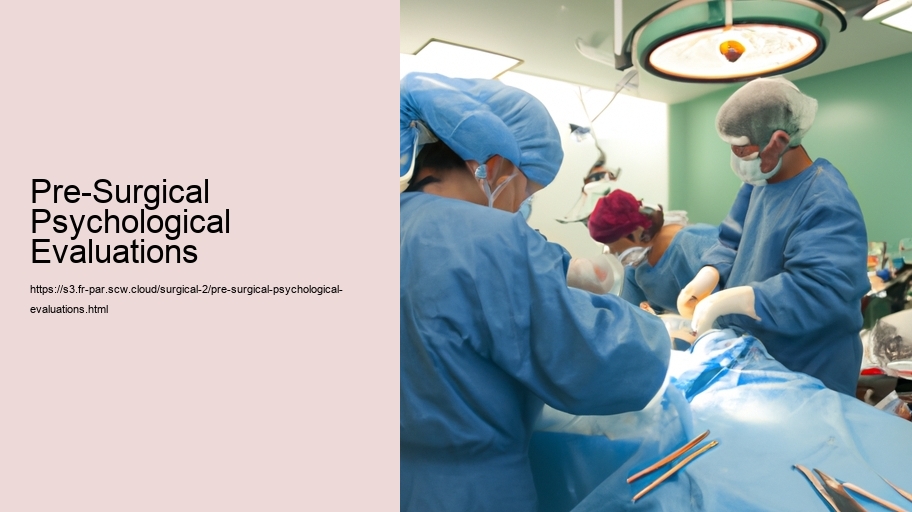Pre-surgical psychological evaluations are an integral aspect of the preparatory process for individuals undergoing various forms of surgery, particularly when the procedures are elective or associated with significant lifestyle changes, such as bariatric surgery or organ transplantation. These evaluations serve multiple purposes, both for the patient and the surgical team, and they can significantly impact the surgical outcomes and overall recovery.
The primary goal of a pre-surgical psychological evaluation is to ensure that the patient is mentally and emotionally prepared for the surgery. This includes assessing the patient's understanding of the procedure, their expectations of the outcomes, and their capacity to cope with the stress associated with surgery. The evaluation helps to identify any psychological conditions or emotional factors that could potentially interfere with the surgical process or the post-operative recovery.
For instance, a patient considering bariatric surgery for weight loss may undergo a psychological evaluation to assess their relationship with food, understanding of the lifestyle changes required post-surgery, and to screen for any eating disorders that could undermine the success of the surgery. Similarly, a patient awaiting an organ transplant might be evaluated to ensure they are mentally prepared for the lifelong commitment to medication adherence and lifestyle adjustments that are necessary post-transplant.
During an evaluation, a psychologist will typically conduct a comprehensive interview with the patient to gather information about their psychiatric history, current mental health status, social support systems, and coping mechanisms. Standardized psychological tests or questionnaires may also be administered to provide objective data on the patient's psychological well-being.
The psychological evaluation also aids in identifying any pre-existing mental health conditions such as anxiety, depression, or substance abuse, which may need to be addressed prior to surgery. Treatment of these conditions can improve the patient's ability to recover and adapt post-surgery, thereby enhancing the overall success of the surgical intervention.
Moreover, the evaluation process also offers an opportunity for the psychologist to educate the patient about the emotional challenges associated with surgery, such as the potential for pain, changes in body image, and the need for post-operative care. By discussing these issues preemptively, patients can develop realistic expectations and a proactive mindset, which can contribute to a smoother recovery process.
The benefits of pre-surgical psychological evaluations extend beyond the individual patient. For the surgical team, the insights gained from the evaluation can inform their approach to patient care, enabling them to tailor their support to the specific needs of the patient. This can lead to a more personalized healthcare experience, which has been shown to improve patient satisfaction and outcomes.
In conclusion, pre-surgical psychological evaluations are a crucial component of the surgical process. They provide a comprehensive assessment of a patient's mental and emotional readiness, identify potential barriers to successful outcomes, and facilitate the necessary psychological support. By integrating these evaluations into the standard pre-surgical protocol, healthcare providers can ensure that patients are not only physically but also psychologically prepared for surgery, which ultimately leads to better health outcomes and a higher quality of life post-surgery.
